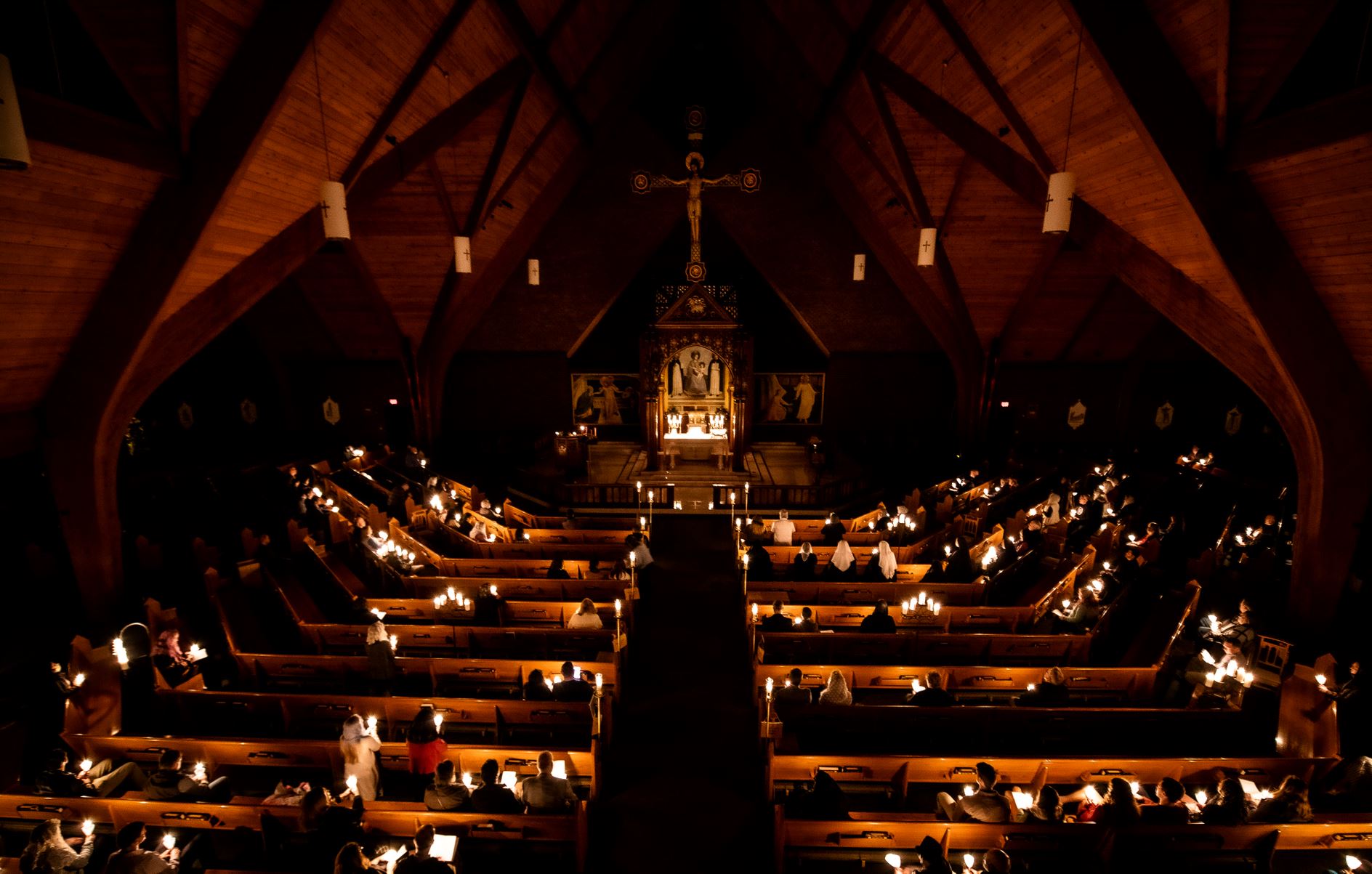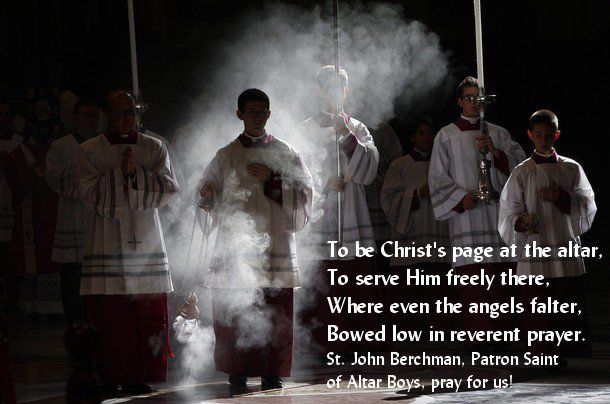FAQ
Who may serve at Holy Mass as an altar server?
Any young man in the parish who is at least 11 years old and wishes to volunteer his service at the altar may be an altar server. He simply needs to speak to the Master of Ceremonies at the 9:30 a.m. or 11:30 a.m. Sunday Masses, or he/his parents may contact Deacon Martin Ricart, or
Harry Ohlhaut (for the Traditional Latin Mass).
How often are altar server trainings?
The parish’s Master of Ceremonies organizes altar server trainings each quarter. Altar servers are asked to be at 3 trainings each year, as a minimum requirement. Note that for the Traditional Latin Mass, trainings is typically twice a month, on Tuesday evenings.
Why become an altar server?
We worship God in a particular way by serving at Holy Mass. We strive to become holy in a particular way by serving at Holy Mass. This does not mean that servers are more or less holy or worship God more or less effectively than the priest or the congregation. This means that we worship God and become holy through the unique experience of serving Holy Mass. We also serve Christ directly in the person of the priest. When a priest celebrates any sacrament, it is Christ who celebrates! When we hand the chalice to the priest, or wash his hands, we are really serving Christ, because the priest celebrates Holy Mass “in the person of Christ, the head.” Lastly, we not only serve Christ in the priest, but we also serve the congregation. By making the responses, conducting ourselves in a worthy manner, and being attentive and careful to our responsibilities, we help the congregation to pray better. The best server is the one that goes unnoticed by the congregation; he fulfills his role humbly, discreetly, and without distraction.
Why are there guidelines and rules?
Serving is meant to be enjoyable and fun, but we can only enjoy something when we are prepared to carry out our responsibility. In order to attend to our responsibilities, we must be prepared physically, mentally, and spiritually.
How can an altar server prepare himself physically for Holy Mass?
Physically, altar servers must look their best for Christ. It should not look as if he just rolled out of bed a few minutes before Holy Mass. This is the reason that there is a dress code explained in the Altar Server Guidelines. When he arrives, he puts on a cassock. The cassock is a garment that represents simplicity of life and service. The priest always has the option to wear it because it shows his own promise to simplicity of life and his divine service that is separate from any service that comes from the world; and that is why it is a garment that is different and separate than any clothing that a lay person wears on a daily basis. Before Holy Mass, the altar server puts on a surplice, which reminds him of his baptism, the promises his parents made for him then, and his dignity as a child of God. The cassocks and surplices have been blessed, so altar servers treat them respectfully and never allow them to lie on the ground or fall down in the closet.
How can the altar server prepare himself mentally for Holy Mass?
Mental preparation means that the altar server must get plenty of rest before he serves so he is alert and attentive. He must leave behind distractions from home and school. He must know the particular responsibilities of his position and how he is to serve in that role. The best way to do this is to regularly look over the altar server guidelines which explain which altar server does what at each part of Holy Mass. If the altar server has questions or doubts, he asks an MC or older acltar server before Holy Mass about what the duties are. Throughout Holy Mass, he must always pay attention to the priest, MC, and his brother altar servers.
How can the altar server prepare himself spiritually for Holy Mass?
Every Catholic is called to be prepared spiritually for Holy Mass; however, altar servers must set a good example of how important Holy Mass is in the Christian’s life. This means that he ought to attend Holy Mass at least once a week and on all the days of obligation, even if he is not scheduled to serve. He ought to learn about his faith at home and/or in a parish religious education program. He should attend the Sacrament of Confession regularly (once a month is a good habit). He should pray every day, at least a morning offering when he gets up and an evening offering when he goes to bed. At the church, he should pray the altar server prayers before and after Holy Mass.


